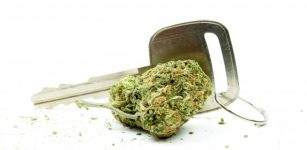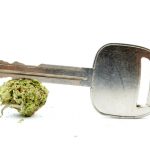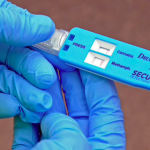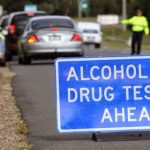South Australia’s ‘Medicinal Cannabis Defence’ Hits a Roadblock

Independent public policy think tank Australia 21 released its latest report on drugs back in March. The document outlines thirteen key recommendations designed to minimise the harms associated with illicit substance use.
Significantly, eleven of the sixteen participants who produced the report were former senior law enforcement and law officials, including ex-police commissioners and heads of corrective services, as well as a retired Director of Public Prosecutions.
The sixth recommendation made in the report was that “current practices to test drivers for the presence of psychoactive substances in their blood should be rigorously reviewed.” The authors noted that police roadside drug testing should focus on driver impairment, whether than mere presence.
Currently, mobile drug testing (MDT) operations in every Australian jurisdiction test for minute traces of certain selected drugs in a driver’s system. Australia 21 suggests that testing should “ascertain whether the driver is unsafe or unfit to drive,” rather than whether they have any illegal substances in their system at all.
“This issue will become a particular concern as the proposed new laws governing use of medicinal cannabis come into effect,” the report states. Currently, THC – the psychoactive compound in cannabis – is one of three illicit substances tested for in all jurisdictions.
A defence for authorised patients
In May, a bill was introduced into the South Australian Legislative Council proposing tougher drug driving laws.
The Drink and Drug Driving Bill 2017 set out new penalties for drivers who test positive for drugs in their system, including immediate licence suspension for first time offenders.
In order to prevent medicinal cannabis users from unfairly losing their licences, a defence was proposed for patients who fail a roadside drug test.
As previously reported, the amendment was put forth by South Australian Dignity Party MLC Kelly Vincent, and the upper house voted in favour of it in August. The ‘medicinal cannabis defence’ had the support of the Liberal opposition, Greens MLCs and Independent MLC John Darley.
Section 47AB of the bill provides that a driver who tests positive for THC is not guilty of drug driving if they have a condition or disability requiring an approved cannabis medicine, along with a medical certificate that states they’re fit to drive whilst using it.
No basis for the hold-up
But last week, the passing of the bill was delayed as a result of the proposed defence. SA road safety minister Chris Picton claimed the exemption would “create an unacceptably wide loophole whereby a driver could point to their use of medical cannabis as a defence to any drug driving offence.”
However, Ms Vincent begs to differ. The leader of the Dignity Party points out that the proposed defence has nothing to do with the use of illegal recreational drugs. “We are talking about a legal effective medical treatment,” she told Sydney Criminal Lawyers®.
“I believe that those driving under the influence of any substance without a therapeutic basis, need to face serious consequences and nothing in my amendment would stop that,” she added.
As Ms Vincent points out, US jurisdictions where cannabis medicines have been legalised have not seen increases in road fatalities. In fact, a University of Columbia study found that in the 29 US states where cannabis is legal, road deaths have decreased by 11 percent overall.
According to Ms Vincent, minister Picton needs to conduct further research into this area. “I would also argue that people are impaired to drive if left untreated, dealing with distracting pain, nausea and migraines,” she continued.
No indication of impairment
However, the legitimacy and effectiveness of MDT operations across Australia is questionable. These programs were implemented to improve road safety. But, unlike random breath testing (RBT) for alcohol that tests for driver impairment, roadside drug testing does nothing of the sort.
RBT is an evidence-based approach to saving lives on the road. It tests for levels of alcohol in a driver’s blood. It’s been scientifically proven that if these levels are exceeded an individual is too intoxicated to operate a vehicle.
MDT, on the other hand, merely tests for traces of illicit substances in a driver’s saliva. This means that a driver might test positive for a drug that may have consumed days prior. It provides no indication as to whether a person is driving under the influence at the time of the test.
Lismore magistrate David Heilpern made a landmark decision in February last year, when he found Joseph Carrall not guilty of drug driving, as it was found that he hadn’t smoked any cannabis for nine days prior to being tested.
In most jurisdictions around Australia, police only focus on three substances: THC, amphetamines and MDMA. So, an individual driving whilst heavily intoxicated by cocaine, heroin, or legally prescribed benzodiazepines or opiates, won’t test positive. And an officer will simply wave them on.
Smoke and mirrors
Former NSW roads minister Duncan Gay stated last year that cocaine wasn’t being tested for because the technology being used didn’t allow for it. But, NSW police announced in August, that it is going to begin testing for the drug. And Tasmania and the NT test for a longer list of substances.
There also seems to be a question around whether it’s possible to test for drug impairment levels. However, in Norway, the government has had laws in place since February 2012, that specify the impairment levels for operating a road vehicle for a range of non-alcohol drugs.
The list of twenty drugs that Norwegian police test for includes the three illicit substances most Australian jurisdictions focus upon, along with a number of other illegal drugs, as well as common prescription drugs, such as Xanax and Valium.
Patients have a right to drive
Back in the SA upper house, the debate over the new legislation has hit a stalemate. And the bill has been sent to a deadlock committee for further review. There’s also contention over whether police powers should be expanded so officers can search the vehicle of a driver who’s tested positive to drugs.
Despite legislation being passed to allow patients to access medicinal cannabis products, authorities still seem reluctant to recognise it as a legitimate medicine. And if the medicinal cannabis amendment fails it means that patients who need the medicine will be denied the right to drive.
The deadlock committee will debate the issue during parliament’s last week of sitting. “This could be with the amendment, without it, or with a new compromise,” Ms Vincent concluded. “I for one, am willing to sit the optional extra week in the parliamentary calendar to see this achieved.”








